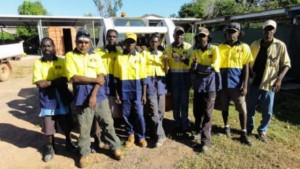Home » Commentary » Opinion » Indigenous service structures slowing progress
· Ideas@TheCentre
 A new QLD Productivity Commission report echoes CIS findings that a convoluted labyrinth of programs is creating a disconnect between service design and delivery for hundreds of remote Indigenous communities. This divide means that many services are failing to effect any actual change for those they are meant to help.
A new QLD Productivity Commission report echoes CIS findings that a convoluted labyrinth of programs is creating a disconnect between service design and delivery for hundreds of remote Indigenous communities. This divide means that many services are failing to effect any actual change for those they are meant to help.
The problem lies with the structure of remote program design and delivery. In many cases there is a systemic dysfunction with the way service providers interact with Indigenous people. Programs aren’t designed for the recipient, but for the provider.
For example, the Community Development Programme (CDP) — which sees Indigenous job seekers in remote areas undertake ‘work-like’ activities in order to receive income support payments — is riddled with issues.
At face value, getting welfare recipients to be more proactive seems like a good idea. However, the running of the program is subcontracted to private providers, who both deliver and regulate the delivery of the service. Most of the providers are for-profit, and there can be a conflict of interest between sustaining their operations and achieving genuine outcomes for participants.
CDP providers receive per person payments from the government, and in many cases it makes more financial sense to keep someone on their books than to get them into actual employment.
Such structural flaws are present in countless areas of Indigenous service delivery, and reflect the significant detachment of many providers from the outcomes they are meant to achieve.
The QLD Productivity Commission recommends that to resolve this issue, Aboriginal and Torres Strait Islander communities need to become more ‘ambitious’ about improving outcomes for themselves.
One of the ways a number of Indigenous communities are doing this is through the establishment of business enterprises. An example from this week saw an Indigenous company awarded a $4.4 million contract for road development in Cape York. A proportion of the profits of these commercial activities are being used to fund social programs in communities, reducing the reliance on government funding.
Government has repeatedly shown it is incapable of providing services and programs to communities effectively. If there is to be real change on the ground, communities must be empowered to become actively engaged in the design and delivery process.
Indigenous service structures slowing progress